We are excited to announce the finalists in the first two categories of 2015 Association for Mormon Letters awards, Creative Non-Fiction and Religious Non-Fiction. We will be announcing the other category finalists over the coming week. Those categories include Comics, Criticism, Drama, Film, Lyrics, Middle Grade Novel, Novel, Picture Book, Poetry, Short Fiction, and Young Adult Novel. The final awards will be announced and presented at the AML Conference on March 4-5, at BYU Hawaii. The finalist announcements include blurbs about each of the books and author biographies, as provided by the publishers and authors.
Creative Non-Fiction
This category can include personal essays, memoirs, and other creative works of a personal nature.
Joey Franklin. My Wife Wants You to Know I’m Happily Married. University of Nebraska Press.
“Modern manhood is confusing and complicated, but Joey Franklin, a thirtysomething father of three, is determined to make the best of it. In My Wife Wants You to Know I’m Happily Married, he offers frank, self-deprecating meditations on everything from male-pattern baldness and the balm of blues harmonica to Grand Theft Auto and the staying power of first kisses. He riffs on cockroaches, hockey, romance novels, Boy Scout hikes, and the challenge of parenting a child through high-stakes Texas T-ball. With honesty and wit, Franklin explores what it takes to raise three boys, succeed in a relationship, and survive as a modern man. My Wife Wants You to Know I’m Happily Married is an uplifting rumination on learning from the past and living for the present, a hopeful take on being a man without being a menace to society.”
Joey Franklin is an assistant professor of English at Brigham Young University. He received his Ph.D. in Literature and Creative Writing from Texas Tech University. His writing has appeared in the Writer’s Chronicle, Poets and Writers magazine, the Norton Reader, and Gettysburg Review. His piece “Working at Wendy’s” won the 2006 Twentysomething Essays by Twentysomething Writers contest.
William Shunn. The Accidental Terrorist. Sinister Regard.
“Nineteen-year-old Bill Shunn is a man on a mission—a Mormon mission, that is, trolling for converts door-to-door a thousand miles from home. This riveting memoir—by turns hilarious, provocative, and thrilling—traces his accidental journey from that humble beginning to hunted fugitive and international terrorist . . . Now, with hard-won wisdom and compassion for his younger self, Shunn recounts the harrowing pilgrimage—rife with good intentions, noble ideals, and deep-seated insecurities—that pushed him to places stranger than any fiction. A gripping chronicle of slow-motion disaster that unfolds with the inevitability of Greek tragedy, The Accidental Terrorist is also a testament to individual triumph in the face of overwhelming authority.”
William Shunn was born in Los Angeles and raised in Utah, the eldest of eight children in a devout Mormon family. He began work as a missionary for the LDS Church at the age of 19. He was assigned to preach in Alberta, Canada, but after six months he was convicted of felony mischief in connection with a false bomb threat and expelled from the country. In 1991, Shunn graduated from the University of Utah with a degree in computer science. Soon thereafter he began finding success as a science fiction writer. His short fiction has appeared in Salon, Asimov’s Science Fiction, The Magazine of Fantasy & Science Fiction and various anthologies, including year’s-best collections. His work has been nominated for the Hugo Award and the Theodore Sturgeon Memorial Award, and twice for the Nebula Award. Shunn left the Mormon Church in 1995 and developed one of the earliest ex-Mormon web sites.
Jamie Zvirzdin, editor. Fresh Courage Take: New Directions by Mormon Women. Signature Books.
“The twelve essays in this anthology provide a refreshing array of female perspectives, personalities, and circumstances. The . . . essays invite readers to recognize and own their personal struggles, gifts, faults, and desires and to accept where they stand on the spectrum of humanity. Fresh Courage Take demonstrates that the road to heaven is not a conveyor belt powered by a checklist of religious obligations, cooked casseroles, and a collection of children. If anything, it is a complex network of interchanges and decisions … including long, often solitary paths . . . Authors include Joanna Brooks (forward), Carli Anderson, Rachael Decker Bailey, Erika Ball, Rachel Brown, Karen Critchfield, Ashley Mae Hoiland, Sylvia Lankford, Marcee Monroe, Brooke Stoneman, Camille Strate Fairbanks, Colleen Whitley, and Jamie Zvirzdin.”
Jamie Zvirzdin is a science editor and freelance writer. She received an undergraduate degree from Brigham Young University and a Master of Fine Arts in Writing and Literature from Bennington College. She grew up in Sandy, Utah.
Religious Non-Fiction
This category refers to books which address issues relevant to the Mormon religious experience. It includes devotional, scholarly, and theological works. It does not include works that are primarily historical or biographical, as the Mormon History Association already presents awards to those books.
Brant A. Gardner. Traditions of the Fathers: The Book of Mormon as History. Greg Kofford Books.
“Brant Gardner looks around and behind the religious purposes of the book and teases out how those thousand years of Book of Mormon history correspond to those same years in the geographic and cultural context where they most plausibly took place. Gardner works through the Book of Mormon chronologically, examining how events in the Book of Mormon reflect the greater historical and cultural developments happening around them at the same time. Gardner asks and answers questions against particular historical backdrops. Why does Nephi appear to be so Christian so long before Christ, and why does his particular time period in Jerusalem help answer that question? Why do Nephi apostate groups from different times appear to adopt the same religion? Why does the Book of Mormon end around A.D. 400? Why not earlier or later? The answers are developed by looking at the Book of Mormon as history in the context of what has become known of Mesoamerican history. Along the way, Gardner also looks at the problem of anachronisms, DNA, and some popular “proofs” of the Book of Mormon that need to be abandoned.”
Brant A. Gardner earned his M.S. in anthropology (specializing in Mesoamerican ethnohistory) from the State University of New York at Albany. He is the author of the six-volume Second Witness: Analytical and Contextual Commentary on the Book of Mormon and The Gift and Power: Translating the Book of Mormon (for which he won the 2011 AML Criticism Award). He has presented papers at the Foundation for Apologetic Information and Research (FAIR), the Book of Mormon Archaeological Symposium, and Sunstone. His other published works include chapters in Estudios de Cultura Nahuatl and Symbol and Meaning beyond the Closed Community: Essays in Mesoamerican Ideas, and articles in the FARMS Review, Sunstone, and Meridian Magazine.
Terryl L. Givens and Philip L. Barlow, editors. The Oxford Handbook of Mormonism. Oxford University Press.
“Terryl Givens and Philip Barlow, two leading scholars of Mormonism, have brought together 45 of the top scholars in the field to construct a collection of essays that offers a comprehensive overview of scholarship on Mormons. The book begins with a section on Mormon history, perhaps the most well-developed area of Mormon studies. Chapters in this section deal with questions ranging from how Mormon history is studied in the university to the role women have played throughout Mormon history. Other sections examine revelation and scripture, church structure and practice, theology, society, and culture. The final two sections look at Mormonism in a larger context. The authors examine Mormon expansion across the globe-focusing on Mormonism in Latin America, the Pacific, Europe, and Asia-in addition to the interaction between Mormonism and other social systems, such as law, politics, and other faiths. Bringing together an unprecedented body of scholarship in the field of Mormon studies, The Oxford Handbook of Mormonism will be an invaluable resource for those within the field, as well as for people studying the broader, ever-changing American religious landscape.”
Terryl Givens is James A. Bostwick Professor of English at the University of Richmond. Philip L. Barlow is the Leonard Arrington Professor of Mormon History and Culture at Utah State University. Other contributors are Paul Anderson, Michael Austin, Hal R. Boyd, R. Lanier Britsch, Samuel Morris Brown, Claudia L. Bushman, Richard Lyman Bushman, Kathryn M. Daynes, Wilfried Decoo, Eric A. Eliason, James E. Faulconer, Noah Feldman, J. Spencer Fluhman, Richard Francaviglia, Van C. Gessel, Sarah Barringer Gordon, Darius Gray, Mark L. Grover, Matthew J. Grow, Tona J. Hangen, Grant Hardy, Tim B. Heaton, Michael Hicks, Kate Holbrook, David Holland, Daniel Walker Howe, Valerie M. Hudson, Cardell Jacobson, Laurie Maffly-Kipp, Armand Mauss, James Morse McLachlan, Richard Mouw, Reid L. Neilson, John Durham Peters, David Paulsen, Daniel C. Peterson, Gregory A. Prince, W. Paul Reeve, Jana Riess, William D. Russell, Jan Shipps, David J. Whittaker, and Margaret Blair Young.
Jad Hatem. Postponing Heaven: The Three Nephites, the Bodhisattva, and the Mahdi. Translated by Jonathon Penny. Neal A. Maxell Institute for Religious Scholarship.
“Christianity, like other world religions, acknowledges the existence of multiple human messianic figures. In this comparative work, philosopher Jad Hatem examines the Book of Mormon’s Three Nephites, Buddhism’s Bodhisattva, and Islam’s Mahdi—all distinctive messianic figures who postpone Heaven, sacrificially prolonging their lives for the benefit of humankind. Jonathon Penny’s translation of the French original includes two additional papers in which Jad Hatem deals with various aspects of Latter-day Saint belief. It also includes an interview between Hatem and Latter-day Saint philosopher James E. Faulconer.”
Jad Hatem is a professor of philosophy, literature, and religion at St Joseph’s University in Beirut, Lebanon, where he has taught since 1976. He has served as the chair of the philosophy department at the university, as also the director of the Centre d’études Michel Henry. He is the author of dozens of books. Among his most recent publications are Qui est la vérité? (Hermann, 2012), L’Amour comme puissance et comme vérité (Éditions du Cygne, 2012), and Un bruit d’avoir été. Sur Qohélet (Orizons, 2014).
Patrick Q. Mason. Planted: Belief and Belonging in an Age of Doubt. Neal A. Maxell Institute for Religious Scholarship and Deseret Book.
“For all its beneficial advances, our secular age has also weakened some people’s ties to religious belief and affiliation. Latter-day Saints have not been immune to this trend. In recent years, many faithful Church members have encountered challenging aspects of Church history, belief, or practice. Feeling isolated, alienated, or misled, some struggle to stay. Some simply leave. Many search for a reliable and faithful place to work through their questions. You can find such a place in Patrick Q. Mason’s Planted. This book gives people who struggle with questions—and people who love those who struggle—practical ways to stay planted in the Gospel of Jesus Christ. Rather than attempting to answer every possible question or doubt, Planted presents an empathetic, practical, and candid dialog about the relationship of doubt and faith.”
Patrick Q. Mason is the Howard W. Hunter Chair in Mormon Studies at Claremont Graduate University. He is author of The Mormon Menace: Violence and Anti-Mormonism in the Postbellum South (Oxford University Press, 2011), which examined anti-Mormon prejudice against 19th century LDS missionaries, and co-editor, with David Pulsipher and Richard Bushman, of War and Peace in Our Time: Mormon Perspectives (Greg Kofford Books, 2012). He has also written a number of articles and book chapters on Mormonism, American religious history, and religion, conflict, and peacebuilding. He earned his graduate degrees from the University of Notre Dame in history and international peace studies.
Brent J. Schmidt. Relational Grace: The Reciprocal and Binding Covenant of Charis. BYU Studies.
“In ancient Greece and Rome, charis was a system in which one person gave something of value to another, and the receiver gave service, thanks, and lesser value back to the giver. It was the word used to describe familial gifts, gifts between friends, gifts between kings and servants, and gifts to and from the gods. In Rome, these reciprocal transactions became the patron-client system. Orderly gift exchange is a key building block in the development of societies. Charis (grace) is the word New Testament authors, especially Paul, sometimes used to explain Christ’s gift to people. But what is the nature of the gift? Since the fifth century, a number of Christian scholars have taught that grace is something bestowed by God freely, with little or nothing required in return. This book sets out to show that “free grace” is not what Paul and others intended.”
Brent J. Schmidt teaches at Brigham Young University-Idaho in the religion and humanities departments. He earned degrees in history and classics from the University of Utah and a PhD in classics from the University of Colorado—Boulder. He is interested in patristics, ancient and modern utopian communities, Greco-Roman history, and New Testament Studies. He is on the BYU New Testament Commentary Series Board of Editors and he is the co-author of the Matthew and 1 Peter, 2 Peter and Jude volumes with John Welch. He received the Hugh Nibley Fellowship (2003-2007) from the Neal A. Maxwell Institute for Religious Scholarship.
About the Awards
The AML Awards have been presented annually since 1977. You can see the list of past awards here. This year there will be awards in the categories of Comics, Creative Non-fiction, Criticism, Drama, Film, Lyrics, Middle Grade Novel, Novel, Picture Book, Poetry, Religious Non-Fiction, Short Fiction, and Young Adult Novel. There are also the Smith–Pettit Foundation Award for Outstanding Contribution to Mormon Letters and the Lifetime Achievement Award.
I am the Awards Committee chair this year, which means I picked the judges, a mixture of authors, scholars, and reviewers, who at least during the judging process remain anonymous. The judges and I worked together to come up with long lists of potential finalists, but I am not involved in any of the decisions on finalists and winners. Works “by, for, or about Mormons” were considered. Authors/creators who are non-Mormon or ex-Mormon are considered if their works deal with Mormonism. Many of the judges created their own panel of assistant judges who shifted through the many applicable works. Then the judges and their panels chose the finalists. Those same judges/panels will pick the final awards this month.
There was previously an established AML practice that an author/creator could not be awarded in the same category two years in a row. That practice was discontinued this year.
Congratulations to all of the finalists!


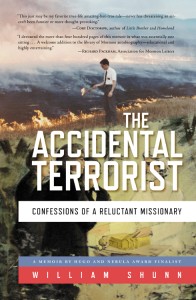
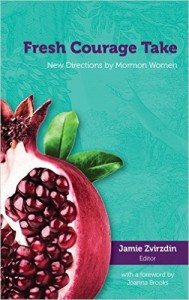
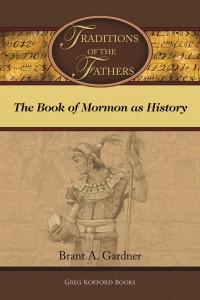
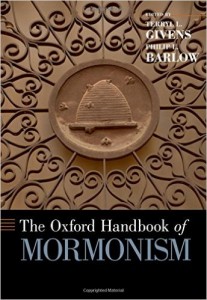
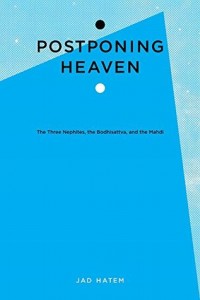
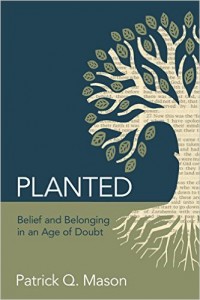
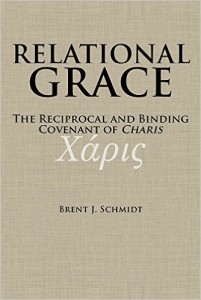
.
An exciting start to this year’s season. I’m liking these shortlistings as they tell me of books I hadn’t heard of or have forgotten about but which clearly demand attention.
There is a richness and variety here that would have been hard to imagine 20 or 30 years ago. Exciting times.